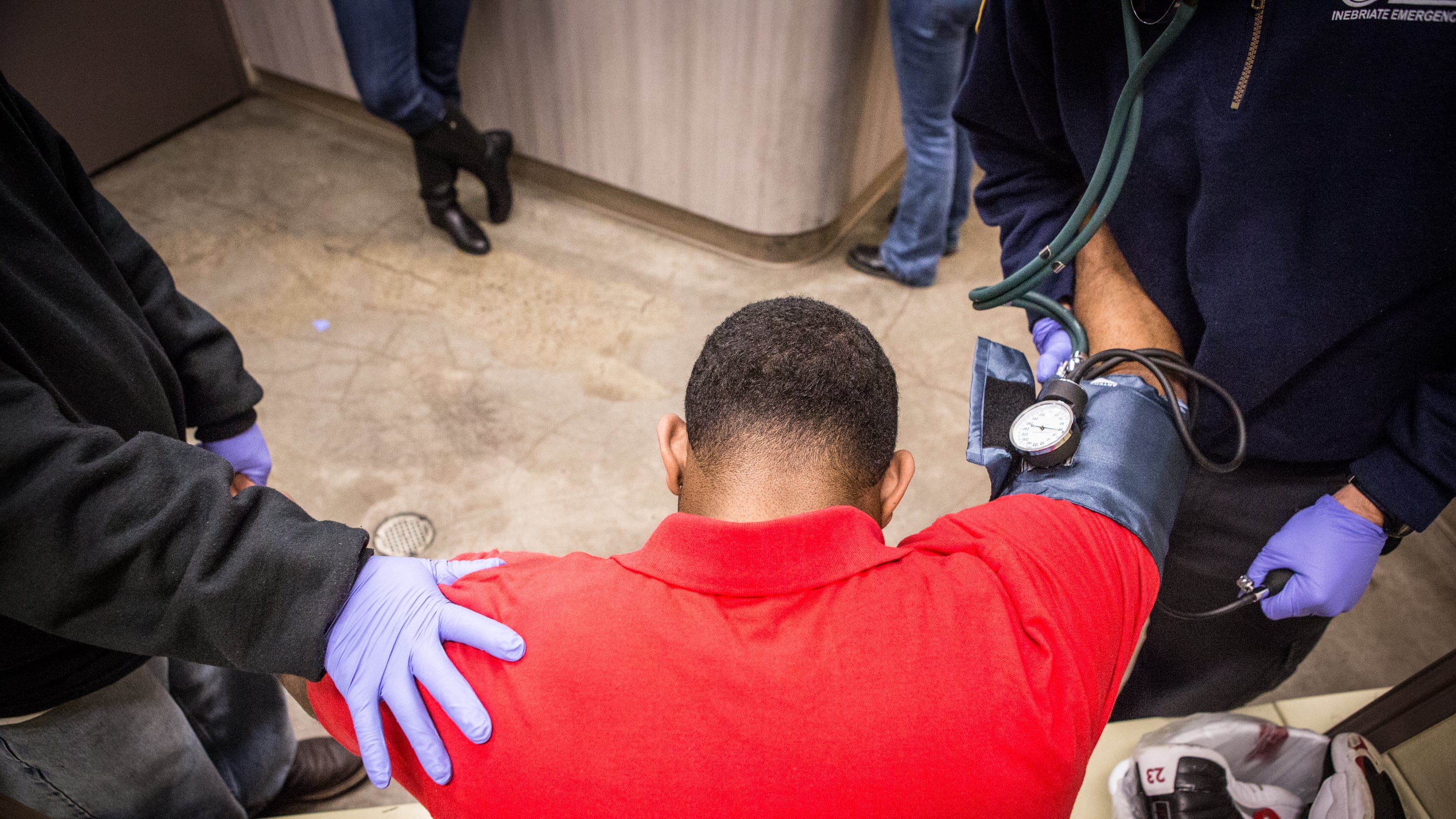Since Portland’s only sobering center closed in late 2019, city and county leaders have contemplated its replacement. Now, those plans are coming into focus.
A proposal set to go before the City Council on Wednesday would have the city pay $335,000 to Legacy Health to retrofit an underused “living room” at its psychiatric hospital in the Lloyd District to provide “sobering services,” which would include nine beds and access to a nurse, a social worker and a peer counselor.
Portland’s now-closed sobering center was a place cops could drop off people in crisis who needed a place to sleep off drugs or alcohol. It shut down in 2019 after a whistleblower reported patients were routinely hurting themselves in the center’s isolation cells.
Officials at Central City Concern, the nonprofit that had run the facility since 1985, said they were unequipped to deal with the rise in methamphetamine use that was causing patients to lash out at staff and each other. Local emergency rooms, already crowded, have had to pick up the slack.
As with the sobering center, police could still drop off people at the new space in Unity Center for Behavioral Health. But unlike the old drunk tank, the new beds would be designed specifically to help people come down from methamphetamines, which can cause symptoms similar to mental illness. Stays are expected to last several days, WW has learned.
Jason Renaud of the Mental Health Association of Portland says it’s a good start. But, he added, “we need about 50 beds, not eight.”
The need for additional substance disorder treatment facilities in Portland is acute. In February, one of Portland’s two major detox centers, the Hooper Detoxification Stabilization Center run by Central City Concern, told the city it had turned away 2,000 people last year who were seeking help, nearly as many people as it let in its doors. WW talked to one of those rejected patients last week, a 22-year-old living on the streets who was desperate for help kicking his fentanyl addiction.
This year, both the city and county appear to be moving to address the public health crisis that has accompanied the drugs flooding Portland’s streets. The two governments have been collaborating for years on a “Behavioral Health Emergency Coordination Network” that was created in part “to examine ways to stand up a new sobering center,” according to a long-standing memorandum.
Portland’s investment would soon be joined by a much larger infusion from the county, which plans to allocate $2 million from its opioid settlement fund this year to the BHECN.
But it’s not yet clear how the money would be spent. A budget announcement by Multnomah County Chair Jessica Vega Pederson in April said it would go, at least partially, to “projects slated to come online in the next fiscal year.”

